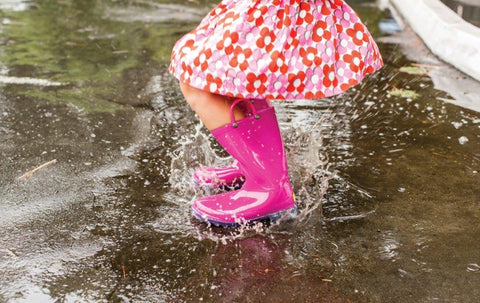Are PVC boots durable?
PVC boots, also known as rain boots or Wellington boots, have been a popular footwear choice for many years, especially in rainy or muddy conditions. These boots are typically made of a durable plastic material known as polyvinyl chloride (PVC), which is known for its waterproof and long-lasting properties. However, many people are still unsure about the durability of PVC boots and whether they are worth investing in. In this article, we will explore the durability of PVC boots and discuss the factors that can affect their lifespan.

What are PVC boots?
Before we dive into the durability of PVC boots, let's first define what they are. PVC boots are a type of waterproof footwear that is commonly used for outdoor activities such as gardening, hiking, fishing, and hunting. They are made from PVC, which is a synthetic plastic polymer that is derived from vinyl chloride. PVC is known for its strength, durability, and resistance to abrasion, chemicals, and weathering.
Durability of PVC boots
One of the biggest advantages of PVC boots is their durability. PVC is a strong and durable material that is designed to withstand harsh environmental conditions such as rain, snow, and mud. PVC boots are also resistant to abrasion, which means they can withstand rough surfaces and sharp objects without getting damaged easily. As a result, PVC boots can last for several years, depending on how often they are used and how well they are taken care of.
Factors that affect the lifespan of PVC boots
Comparing the BOA Lacing System to Normal Laces
While PVC boots are generally durable, there are several factors that can affect their lifespan. These include:
Frequency of use: PVC boots that are used frequently are more likely to wear out faster than those that are only used occasionally. If you use your PVC boots every day, they may start to show signs of wear and tear sooner than if you only wear them once or twice a week.
Exposure to sunlight: PVC boots that are exposed to sunlight for long periods of time can become brittle and crack over time. This is because UV rays can break down the PVC material, causing it to lose its flexibility and strength.
Exposure to chemicals: PVC boots that are exposed to chemicals such as gasoline, oil, and pesticides can also become damaged over time. Chemicals can weaken the PVC material and cause it to crack, peel, or discolor.
Improper storage: PVC boots should be stored in a cool, dry place away from direct sunlight and heat sources. If they are stored in a damp or humid area, they may become moldy or develop an unpleasant odor. Similarly, if they are stored near a heat source, the PVC material may become warped or distorted.
In conclusion, PVC boots are generally durable and can last for several years if they are used and maintained properly. They are designed to withstand harsh environmental conditions and are resistant to abrasion, chemicals, and weathering. However, the lifespan of PVC boots can be affected by several factors, including frequency of use, exposure to sunlight and chemicals, and improper storage. If you want to ensure that your PVC boots last as long as possible, it's important to take care of them and store them properly. With proper care, PVC boots can be a great investment that will keep your feet dry and comfortable for years to come.

Comments
0